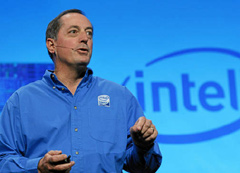 by Ben Schiller –
by Ben Schiller –
Post-financial meltdown, business schools are trying to make their graduates more responsible. But does taking one class on ethics work, or does a new ethical model need to permeate the curriculum?
Many industry watchers saw business schools as contributing factors in the financial crisis, arguing that, by failing to challenge orthodoxies, and overlooking “socially useless” activities, they helped create conditions for collapse. That nearly every relevant banker, regulator, and politician was an MBA graduate helped make the case.
But what about now? Have b-schools changed?
Yes, and no, according to a survey of how schools are teaching social, environmental, and ethical topics.[Read more…]

 by Amy Gallo –
by Amy Gallo – by Gary Jason –
by Gary Jason – by Bruce Brown and Scott D. Anthony –
by Bruce Brown and Scott D. Anthony – by Michael Hyatt –
by Michael Hyatt –